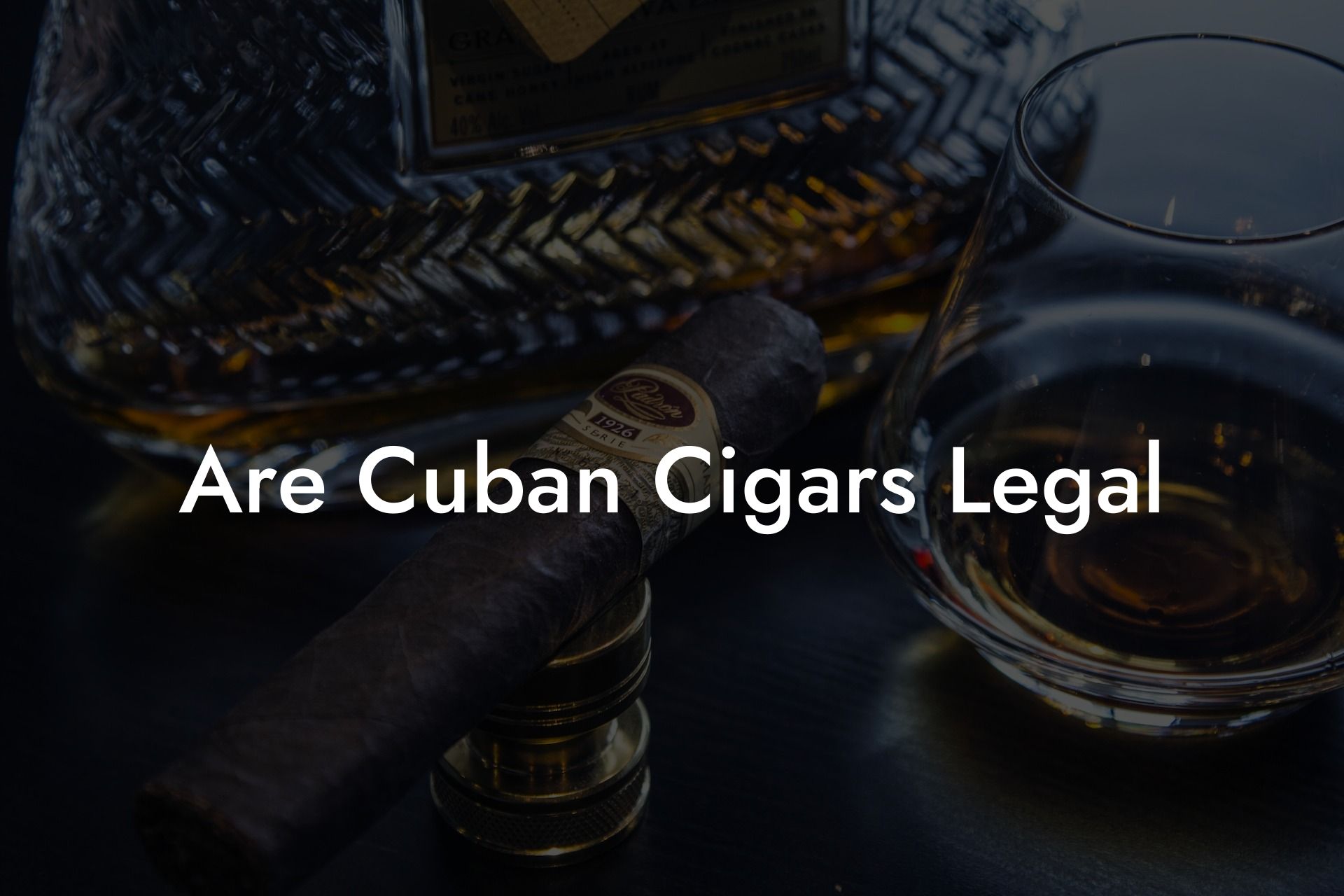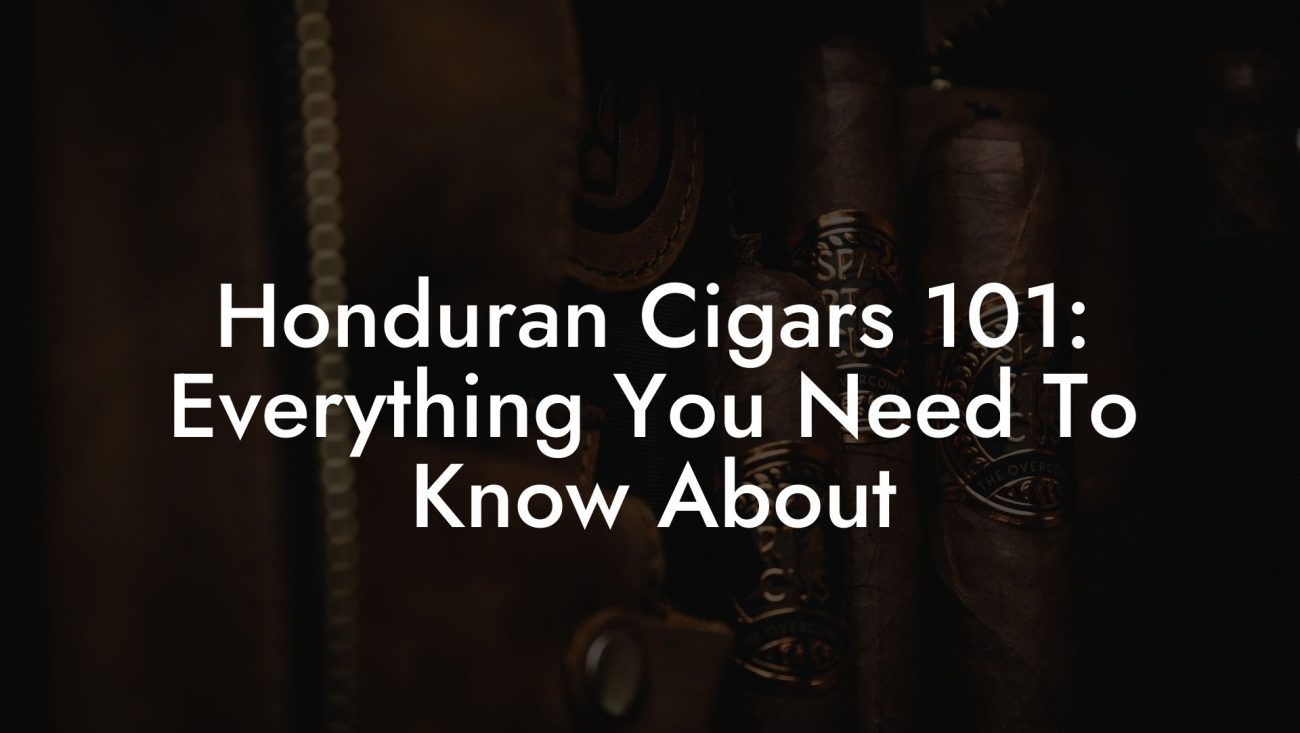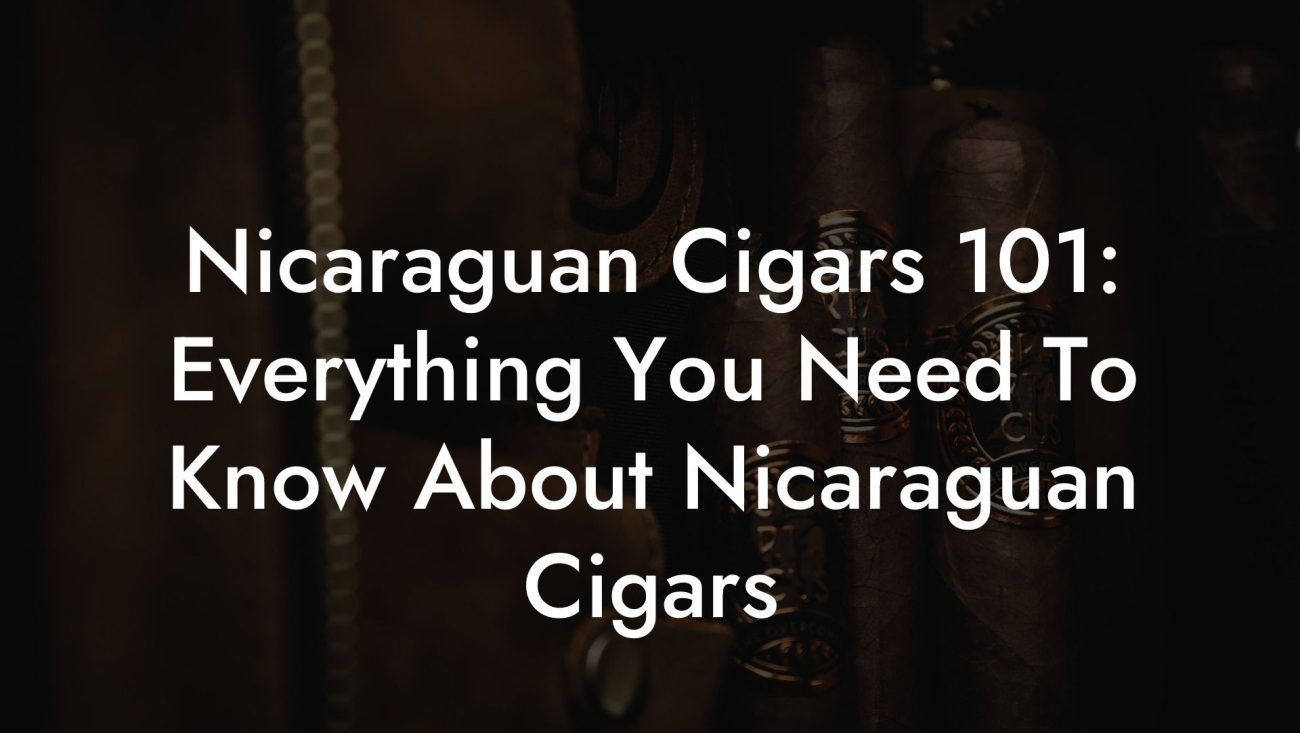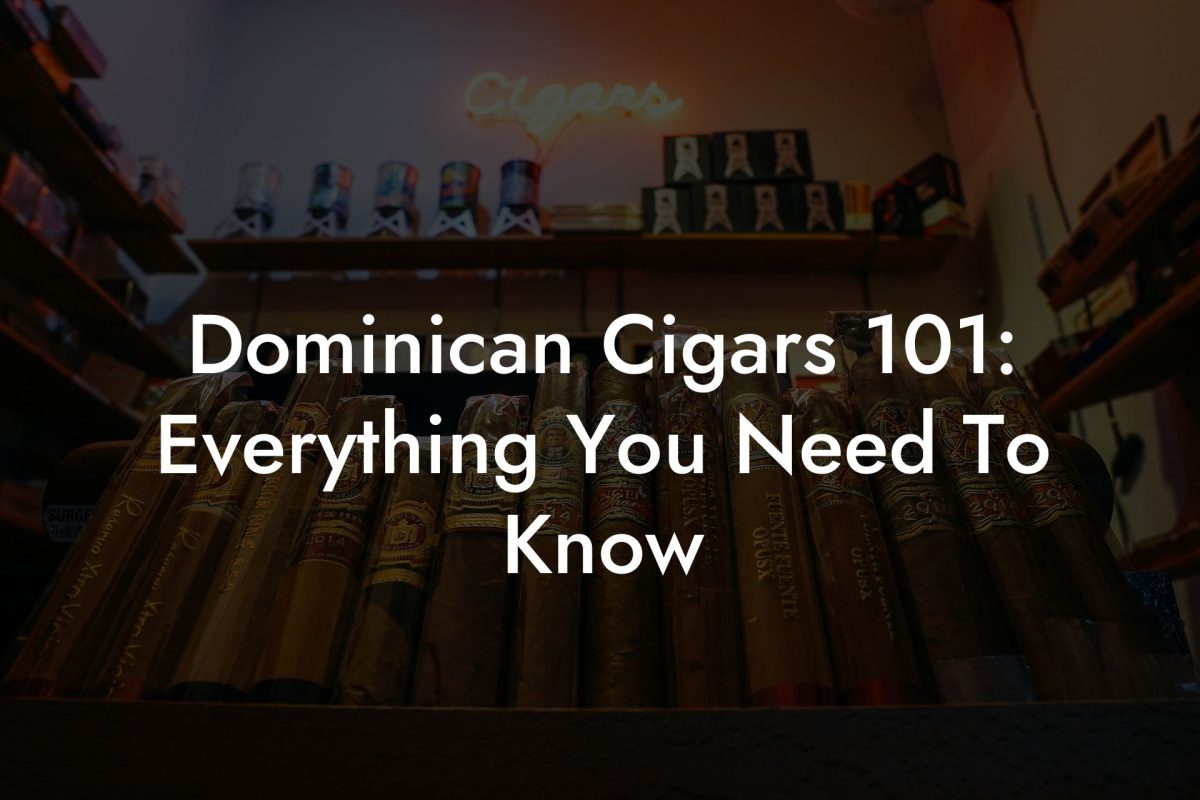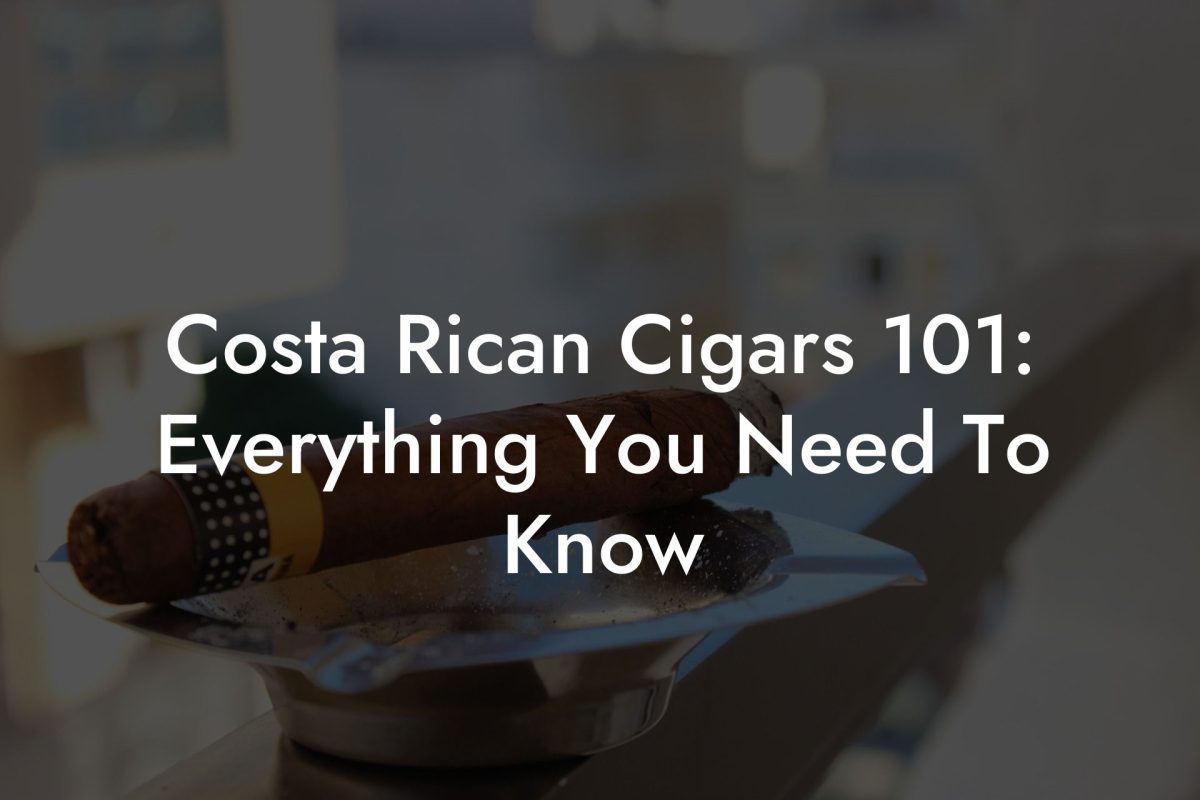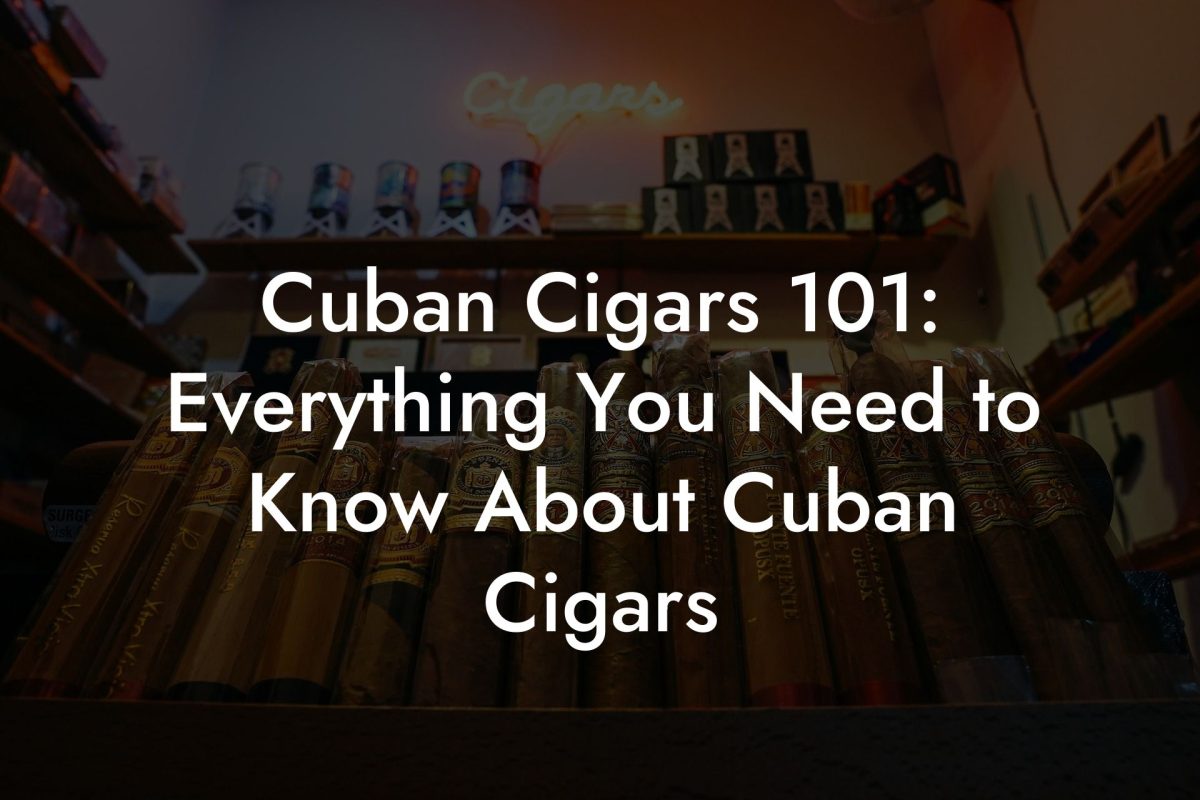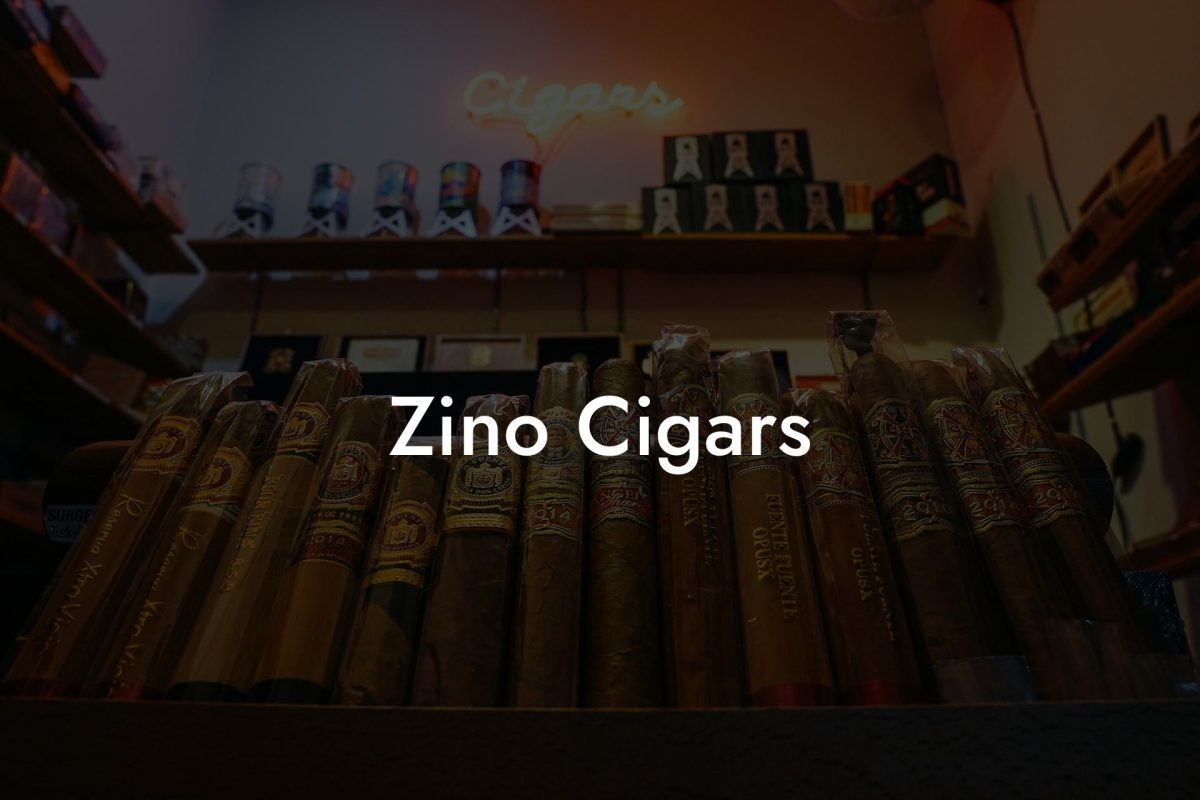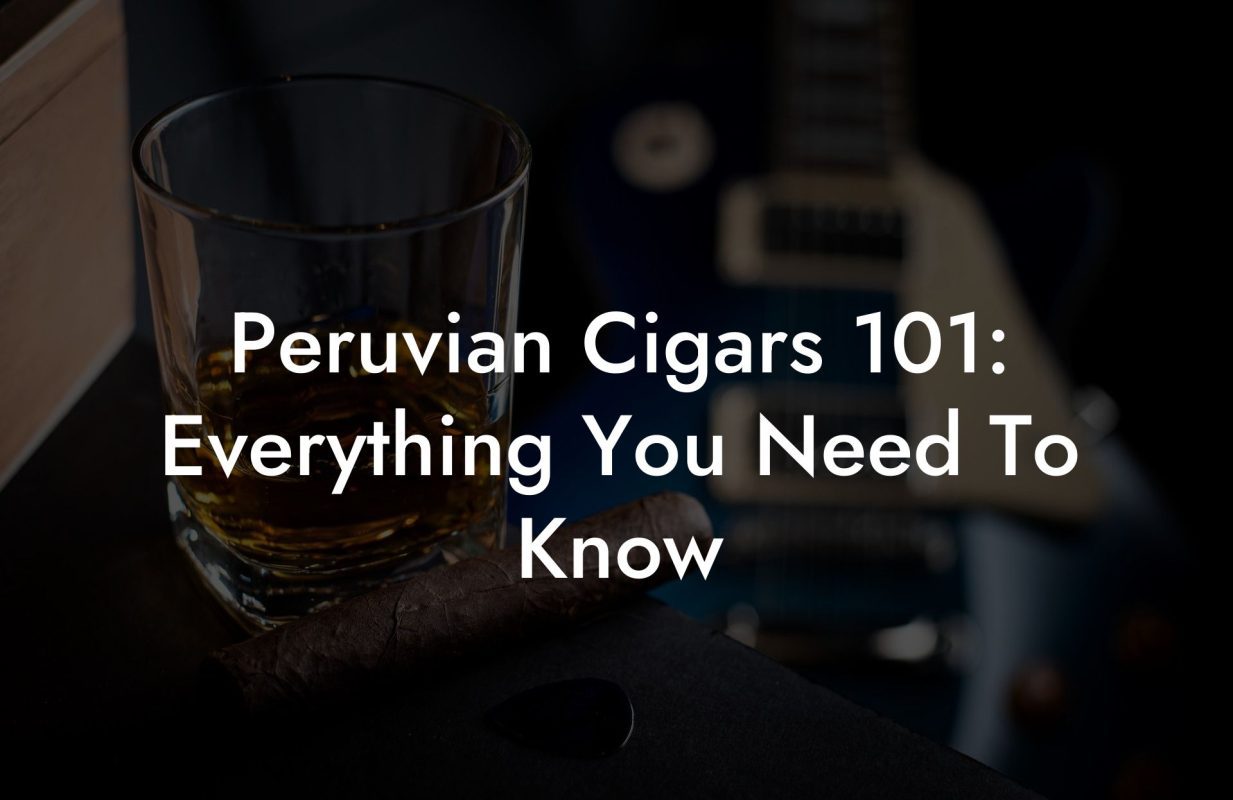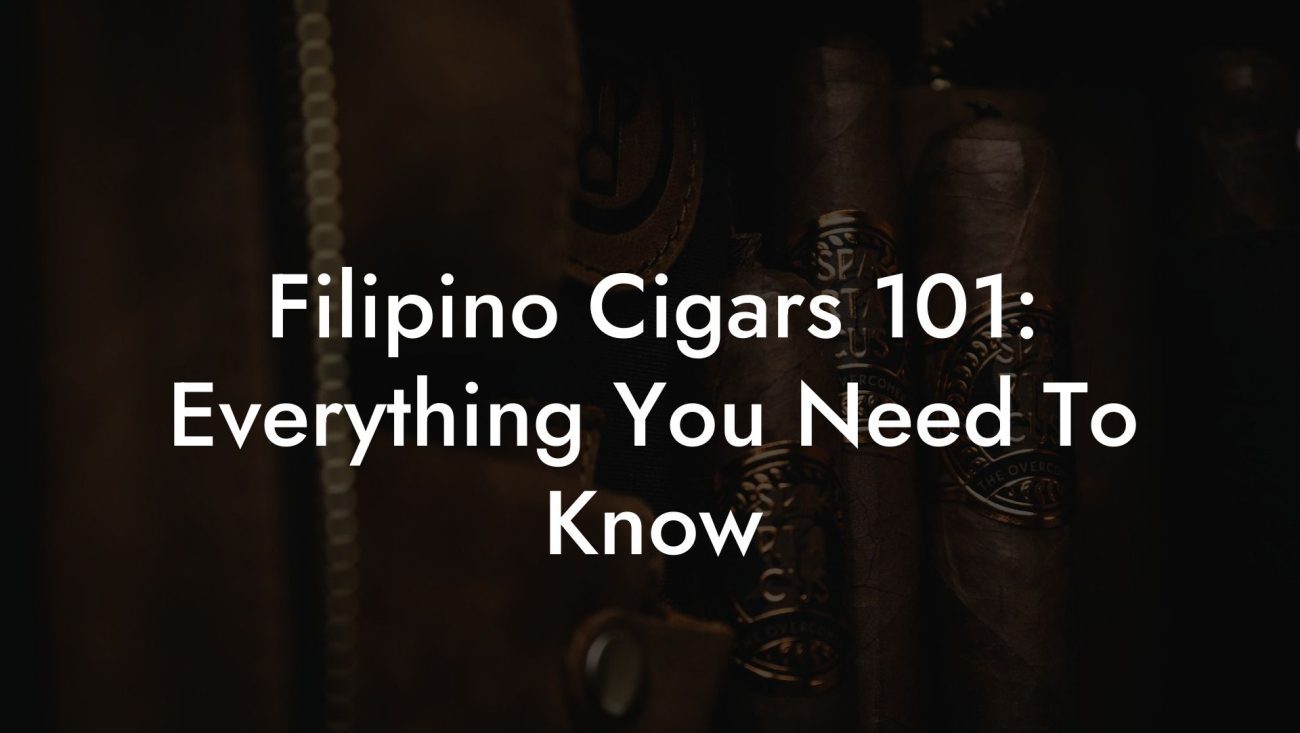Rolling up the facts like a perfectly aged Stogies, the legality of Cuban cigars is as layered and complex as the finest tobacco leaves. Picture yourself scrolling through vintage Instagram feeds, slick visuals of Havana’s crumbling colonial streets, stylized shots of passionate cigar aficionados, and hashtags that drop hints like #CubanCigarsRule. But behind the smoke and mirrors, you might be wondering: Are Cuban cigars legal? Whether you're a Gen-Z trendsetter or a millennial with a taste for refined indulgence (or maybe just a curious wanderer in the world of tobacco lore), this deep dive is your all-access pass to history, policy, and a bit of cheeky mythbusting.
Are Cuban Cigars Legal Table of Contents
The Timeless Allure and Cultural Impact of Cuban Cigars
Decoding the Legal Landscape: History and Controversies
U.S. Policy and Cuban Cigars: An Embargo’s Legacy
Are Cuban Cigars Legal in the U.S. Today?
Cuban Cigars in the International Arena: Legal Nuances Across Borders
The U.S. Legal Loophole: Travel Exceptions and Personal Use
Mythbusting: Common Misconceptions About Cuban Cigars
Navigating the World of Cuban Cigars: A Guide for the Curious Smoker
What Does the Future Hold for Cuban Cigars?
Resources and Community Support: Your Next Steps
Expert Opinions and Industry Insights
Integrating Cuban Cigars into a Modern Lifestyle
Cuban Cigars and the Digital Revolution: A New Frontier
Frequently Asked Questions About the Legality of Cuban Cigars
Embrace the Complexity: Your Journey into the World of Cuban Cigars
The Timeless Allure and Cultural Impact of Cuban Cigars
There’s a reason Cuban cigars have earned legendary status around the globe. As icons of sophistication and rebellion, these hand-rolled masterpieces have been celebrated by revolutionaries, rock stars, and royalty alike. Born on the island of Cuba where fertile soil and ideal climate combine to produce tobacco of unparalleled quality, Cuban cigars embody both tradition and rebellion in every puff.
For centuries, the art of cigar making in Cuba has been passed down through generations, carrying the legacy of Cuban culture, a blend of Spanish colonial flair and Caribbean spirit. With every draw, you're not just smoking a cigar; you're partaking in a historical ritual woven into the fabric of Cuba's national identity.
It’s no wonder that these cigars have become a symbol of celebration, artistic expression, and even political statements. Just as hashtags and viral trends captivate today’s social media landscape, Cuban cigars once captivated the world with their mystique, sensual aroma, and the promise of luxury, all wrapped in a tobacco leaf.
Decoding the Legal Landscape: History and Controversies
Navigating the legal battlefield of Cuban cigars feels a bit like decoding an ancient scroll, filled with twists, turns, and a history that’s as dramatic as a telenovela. To truly understand if Cuban cigars are legal, we need to roll back the clock and examine how political shifts, international relations, and economic embargoes have shaped their status.
In the mid-20th century, Cuba stood as a global tobacco powerhouse. Its cigars were synonymous with excellence, and celebrities couldn’t get enough of them. However, the seismic political changes following the Cuban Revolution in 1959 sent shockwaves through the international community. Tensions between Cuba and several Western nations, particularly the United States, created an intricate legal labyrinth that endures to this day.
At the heart of the legal conundrum lie trade embargoes, tight import regulations, and ever-changing political agendas. Just like a frenetic Twitter thread full of conspiracy theories, the legal status of Cuban cigars varies depending on which country you’re in, and even within countries, the law can be a moving target.
Despite modern-day calls for normalization and the gradual thaw in relations between Cuba and some countries, the legal debate around Cuban cigars is far from settled. For many, the question remains: In a global market dominated by ever-evolving trade policies, how do we truly gauge what’s legal and what’s not?
U.S. Policy and Cuban Cigars: An Embargo’s Legacy
If you’ve ever wondered why your local tobacco shop might not have a rack of Cuban cigars, the answer is often wrapped up in U.S. policies. The United States has maintained a complicated relationship with Cuba since the Cold War, enforcing trade embargoes and restrictions that reverb through the cigar world.
The long-standing trade embargo was designed to economically isolate Cuba in response to political disagreements dating back decades. This embargo has meant that, for a long time, the import of Cuban cigars into the U.S. was officially off-limits. It wasn’t just about prohibiting luxuries, it was part of a broader political statement aimed at influencing the Cuban government.
However, in recent years, there have been subtle shifts. Some regulations have been softened, and a few loopholes have emerged, leading to smattering debates over the current legal status. Are these cigars still strictly illegal, or has the law made them a grey area, appealing to both collectors and casual smokers alike?
Even as U.S. lawmakers debate the evolving policies, travelers to Cuba can now bring a limited number of cigars back home under specific conditions. This change in policy underscores a slow-moving, fascinating transformation in diplomatic relations and trade laws.
Are Cuban Cigars Legal in the U.S. Today?
The million-dollar question: Can you legally light up a Cuban cigar on U.S. soil? The answer is as layered as the cigars themselves, dipping into legal grey areas and public debate. Technically speaking, it’s still a touchy subject. U.S. law restricts the sale and import of Cuban cigars due to the enduring embargo. However, there’s a twist.
Travelers who visit Cuba are allowed to purchase a limited number of Cuban cigars for personal use and then bring them back home. That’s right, if you’ve got a boarding pass stamped with “Cuba,” you might just be in the clear, as long as you stick to the rules and aren’t reselling them. This loophole has generated a flurry of discussions among cigar aficionados and legal scholars alike.
But here’s where it gets even more interesting: while buying for personal use isn’t strictly illegal, the gray market and online imports have created murky waters. Sellers based in countries with looser regulations often source their stock from Cuban producers, and sometimes these cigars slip through customs before landing in U.S. hands.
So, if you’re itching to join the ranks of those who proudly puff on a Cuban cigar, remember that the law has more twists than a tumbleweed. It’s a mix of travel regulations, personal use exceptions, and the occasional diplomatic olive branch that makes the current landscape as unpredictable as a next-gen meme.
Cuban Cigars in the International Arena: Legal Nuances Across Borders
While the U.S. plays hardball with its embargo, many other countries welcome Cuban cigars with open arms, sometimes even revering them as national treasures. Europe, Canada, and parts of Latin America have a long-standing tradition of enjoying these cigars without the same restrictions. The key differences come down to trade relations, cultural heritage, and local laws.
In Europe, for instance, Cuban cigars have woven themselves into the fabric of luxury and sophistication. Countries like Spain and France, with their rich colonial histories, often see these cigars as relics of a bygone era, symbols of glamour and passion. Meanwhile, Canada’s more relaxed trade policies allow importers to offer Cuban cigars to connoisseurs who appreciate authenticity mixed with a touch of rebellion.
Latin American nations, with their own storied histories in tobacco cultivation and cigar production, may have stricter regulations when it comes to protecting local industries. Here, Cuban cigars can serve as both an exotic treat and a challenge to national identity. The interplay of regional protectionism and international demand creates a patchwork legal tapestry that can be as colorful as the cigars themselves.
These international variations serve as a reminder that legality isn’t a one-size-fits-all label. Instead, it’s a blend of cultural acceptance, political will, and historical context that collectively determine whether a Cuban cigar can be enjoyed or if it remains a coveted collectible hidden behind customs barriers.
The U.S. Legal Loophole: Travel Exceptions and Personal Use
If the concept of travel exceptions doesn’t get your heart racing, nothing will! The legal framework in the U.S. provides a notable loophole: travelers returning from Cuba are permitted to import a limited number of Cuban cigars for personal consumption. This regulation was designed to provide latitude for those who actually visit the island rather than relying on third-party imports.
However, it’s important to note that this exception comes with very specific conditions. The cigars must be intended solely for personal use and not for commercial resale. The law is crystal clear on this point, any intent to profit from these prized possessions would fall foul of U.S. regulations, inviting legal consequences and customs scrutiny.
This travel exception sparks a dreamy dichotomy in the minds of cigar enthusiasts: on one hand, there’s a promise of legal indulgence if you make the pilgrimage to Cuba, and on the other, the frustration of a world where desire is often met with red tape. For many, the romance of traveling to Cuba and returning with a handful of authentic cigars is part of the allure, and a subtle act of defiance against a strict regulatory regime.
In today’s digital age, where experiences are curated on social media with a side of irony, the travel loophole has become a badge of honor, a nod to those who have boldly navigated the complexities of international law to savor a piece of history.
Mythbusting: Common Misconceptions About Cuban Cigars
With great allure comes great misinformation. Around Cuban cigars, a host of myths have swirled like aromatic smoke rings in cigar lounges worldwide. Let’s set the record straight by debunking some of the prevailing misconceptions.
Myth #1: All Cuban Cigars Are Illegal in the U.S.
The blanket statement that all Cuban cigars are banned in the U.S. isn’t entirely accurate. While commercial trade and sale are prohibited due to the embargo, travelers who personally purchase them in Cuba are legally allowed to bring back a limited quantity for personal use.
Myth #2: Cuban Cigars Can Only Be Smoked by the Elite
The notion that enjoying a Cuban cigar is an exclusive, high-society pastime is as outdated as rotary phones. Today’s cigar culture is evolving, with Gen-Z and millennials embracing the ritual with a tongue-in-cheek swagger that celebrates both tradition and modernity.
Myth #3: Legal Loopholes Mean You Can Import Unlimited Quantities
Not so fast! The travel exception is carefully calibrated to allow only a limited number of cigars for personal use. Safety checks and customs regulations are in place to ensure that these exceptions don’t open the floodgates to commercial trafficking.
Myth #4: Cuban Cigars Are the Only ‘Real’ Cigars
While Cuban cigars have a storied reputation, many other countries in the Caribbean, Latin America, and beyond produce fine cigars that rival their Cuban counterparts in quality. The romance of Cuban tobacco is undeniable, but the world of cigars is wonderfully diverse.
Dispelling these myths not only enriches our understanding of Cuban cigar legality but also invites us to appreciate the broader cultural and historical significance behind each wrapper. When you light up a cigar, Cuban or otherwise, you’re engaging in a multi-layered experience that blends art, politics, and pure sensory delight.
Navigating the World of Cuban Cigars: A Guide for the Curious Smoker
So, how does one dive into this world where legality, luxury, and lore intersect? Whether you’re a seasoned aficionado or a novice looking to explore, here are some practical tips for navigating the complex realm of Cuban cigars.
Do Your Homework
In today’s information age, knowledge is just a click away. Familiarize yourself with the current U.S. travel regulations and customs rules regarding Cuban cigars before you embark on your journey. Trust us, historical context and legal particulars can save you a lot of hassle at the airport.
Travel If You Can
The best way to experience Cuban cigars in their natural habitat is to visit Cuba. Aside from the legal travel exception, there’s an unmatched authenticity about picking up a fresh box in a Havana mercado or a chic boutique in Trinidad. The experience enriches not only your knowledge of tobacco culture but also your Instagram feed.
Buy from Trusted Sources
If travel isn’t in the cards, ensure you’re buying from reputable dealers who understand the legal nuances of Cuban cigar distribution. Stick to licensed retailers who abide by the import regulations to avoid any legal complications.
Experiment and Share
Cigar culture isn’t just for the old guard. With social media platforms providing a stage for user-generated reviews and creative unboxings, part of the fun is experimenting with different brands, models, and sizes of cigars and then sharing your experiences. Whether you’re a casual puffer or a connoisseur in the making, your unique perspective can reshape traditional narratives.
Embrace the opportunity to fuse modern aesthetic with age-old tradition. In a world where norms are constantly being rewritten, your exploration of Cuban cigars can be both a rebellion and a celebration, an homage to history that’s fully in tune with today’s zeitgeist.
What Does the Future Hold for Cuban Cigars?
As with any topic steeped in political intrigue and cultural significance, the future of Cuban cigars remains as enigmatic as a well-rolled stogie. With international relations quietly shifting and bipartisan debates occasionally heating up in Washington, changes to policies, both in the United States and globally, are on the horizon.
Some analysts predict a further thaw in U.S.-Cuba relations that could eventually see a complete normalization of trade policies, potentially opening the floodgates for a more mainstream market of Cuban cigars in the U.S. Others, however, caution that entrenched political interests and lingering Cold War sentiments could keep the status quo intact for years to come.
For the modern cigar enthusiast, this uncertainty is both a challenge and an invitation to stay informed. As legalities evolve, so too will the market, consumer protections, and the very culture of cigar smoking. In the meantime, being well-versed in the legal landscape and following policy updates can help ensure that your passion remains both enjoyable and compliant.
The future may promise new trade agreements, relaxed import restrictions, or even groundbreaking shifts in international diplomacy that place Cuban cigars in a whole new light. Until then, the allure of these cigars remains intact, a symbol of mystery, mastery, and the ever-rebellious spirit of Cuba.
Resources and Community Support: Your Next Steps
Feeling overwhelmed by the legal jargon and historical tidbits? Don’t sweat it, there’s a vibrant community of cigar enthusiasts, legal experts, and cultural historians ready to help you navigate the world of Cuban cigars.
Start by diving into online forums, social media groups, and websites dedicated to cigar culture. Trusted sources like cigar magazines, YouTube channels that blend education and entertainment, and blogs written by industry insiders can provide you with the latest updates on legal status, travel guidelines, and underground trends.
Additionally, if you’re planning a trip to Cuba or considering your first purchase from an international vendor, reach out to knowledgeable importers and legal advisors who specialize in tobacco trade. Not only can they offer personalized guidance, but they can also connect you with local communities that celebrate the rich heritage of Cuban cigars.
Remember, the key to staying ahead in this ever-shifting landscape is community support and continuous learning. Whether you’re curating the perfect tasting event or simply indulging in a quiet moment of self-reflection with a fine cigar in hand, there are resources and connections waiting to elevate your experience.
Expert Opinions and Industry Insights
To add an extra dose of authenticity to our discussion, we reached out to some experts in the field of international tobacco trade, legal scholars specializing in trade embargoes, and a few veteran cigar aficionados who have seen the scene evolve over decades.
One legal expert explained, "The implications of the U.S. embargo on Cuban goods have rippled across decades, influencing not just trade policies but also consumer habits. The travel exception for Cuban cigars is a fascinating compromise that reflects a larger tension between political idealism and practical consumer demand."
A renowned cigar sommelier added, "There is an undeniable charm to Cuban cigars that goes beyond taste. It’s a cultural artifact accompanied by decades of history, and even if the legal status is murky, it continues to ignite passion among those who appreciate life's finer rebellions."
Their insights underscore the fact that, whether you’re analyzing legal texts or simply enjoying a well-crafted smoke, Cuban cigars represent a fusion of art, law, and culture. These expert perspectives serve as valuable signposts as you navigate your own journey into the cigar world.
Integrating Cuban Cigars into a Modern Lifestyle
In a world where traditions evolve and new lifestyle trends emerge each day, integrating the experience of Cuban cigars into your life can be both a nod to the past and a statement of personal style. For today’s young adults, it’s not just about the act of smoking, it’s about the whole experience: the ritual, the ambiance, and the stories that come with each finely crafted cigar.
Think of it as curating a lifestyle that respects heritage while embracing modernity. Whether it’s hosting a laid-back, stylish gathering with friends where each member brings their own unique international flair, or enjoying a solitary evening that pairs a carefully selected Cuban cigar with your favorite craft cocktail, the act transcends just nicotine, it’s an artistic expression.
Moreover, in the age of digital storytelling, sharing your experiences can be a form of creative rebellion. Post that artfully captured Instagram Story of your latest cigar find, complete with aesthetic filters and witty captions. Your unique blend of historic grandeur and modern vibe can spark conversations, foster community, and even influence a new generation of cigar enthusiasts.
The integration of Cuban cigars into a contemporary lifestyle isn’t just a personal indulgence; it’s a cultural dialogue that challenges our ideas about luxury, legality, and the art of living. So, whether you’re a traveler, a legal eagle, or simply a lover of timeless traditions, let the Cuban cigar be a symbol of your own distinctive narrative.
Cuban Cigars and the Digital Revolution: A New Frontier
As scanning QR codes, streaming live feeds, and curating digital content become part of everyday life, it was only a matter of time before cultural practices like cigar smoking found their digital counterpart. Influencers and bloggers are now mixing aged sophistication with a punk-rock digital twist, creating content that is both educational and entertaining.
Virtual cigar lounges, interactive webinars hosted by seasoned aficionados, and online marketplaces adhering to strict legal regulations have made the Cuban cigar world more accessible than ever. Enthusiasts are leveraging platforms like YouTube, Instagram, and TikTok to share unfiltered experiences and honest reviews of their favorite brands.
This digital revolution is reshaping how traditions are maintained and redefined. By blending rich cultural histories with the immediacy of digital communication, Cuban cigars are not just surviving, they’re thriving in a new era where authenticity and connectivity go hand in hand.
So, if you find yourself streaming a live unboxing of your latest Cuban cigar purchase or swapping stories with fellow aficionados online, remember that you’re part of an exciting movement that bridges centuries of tradition with the pulse of modern innovation.
Frequently Asked Questions About the Legality of Cuban Cigars
Got questions swirling around like smoke rings? We’ve compiled some of the most frequently asked questions about Cuban cigars and their legal status to help clear the air!
1. Are Cuban cigars legal in the United States for personal use?
Yes. While commercial trade and sale are prohibited under the U.S. embargo, travelers returning from Cuba are allowed to bring back a limited number of Cuban cigars for personal use.
2. Can I import Cuban cigars online from vendors outside the U.S.?
Purchasing Cuban cigars online can be legally murky. It’s crucial to buy from reputable sources and be aware of U.S. customs regulations. Importing large quantities for resale is illegal.
3. How many Cuban cigars am I allowed to bring into the U.S.?
The allowance is typically limited and strictly for personal consumption. Guidelines change, so it’s wise to check the latest U.S. Customs and Border Protection policies before you travel.
4. Are Cuban cigars legal in other countries?
In many countries, particularly in Europe and Canada, Cuban cigars are legally sold and enjoyed without the stringent restrictions present in the U.S. However, local regulations vary, so it’s best to verify the laws in your own country.
5. Why were Cuban cigars banned in the United States?
Cuban cigars have been part of a broader trade embargo imposed as a political measure following the Cuban Revolution. The restrictions were designed to isolate Cuba economically, and while some exceptions exist, the ban on commercial trade remains.
6. Will the legal status of Cuban cigars change in the future?
Policy shifts are always possible as international relations evolve. Recent discussions and gradual relaxations of some restrictions hint at potential changes, so staying informed is key.
Embrace the Complexity: Your Journey into the World of Cuban Cigars
Whether you’re a legal eagle deciphering international trade laws or someone simply looking to savor the rich flavors of a finely rolled Cuban cigar, the journey is as engaging as it is complex. Cuban cigars have navigated centuries of cultural renaissance, political battles, and a digital revolution that has redefined how we connect with tradition.
Today, your curiosity has led you through decades of history, legal debates, and lifestyle shifts, all converging in the smoky allure of Cuban cigars. In this era of dynamic social change, these cigars serve as a testament to how history and modernity can coexist in the most unexpected ways.
By keeping informed, engaging with authentic communities, and daring to explore the gray areas of legality with a wry smile, you’re not just consuming a product, you’re participating in a cultural dialogue that spans generations. Step forward with confidence, armed with knowledge and a penchant for the finer details. Let every puff remind you that complexity and beauty often reside in the details of controversy.
Your journey into the world of Cuban cigars is a celebration of history, art, and the bold spirit of rebellion, a journey that continues to evolve along with the shifting tides of political, cultural, and legal landscapes. Embrace the intrigue, savor the flavor, and puff away, knowing that every draw is a nod to an enduring legacy.
Stay curious, stay engaged, and let your passion for Cuban cigars ignite conversations that bridge the gap between past and present. Your modern exploration is a reminder that even in a world ruled by rapid change, tradition continues to hold strong, and sometimes, the best way to honor it is simply by enjoying life’s little luxuries with a smirk and a sense of wonder.

